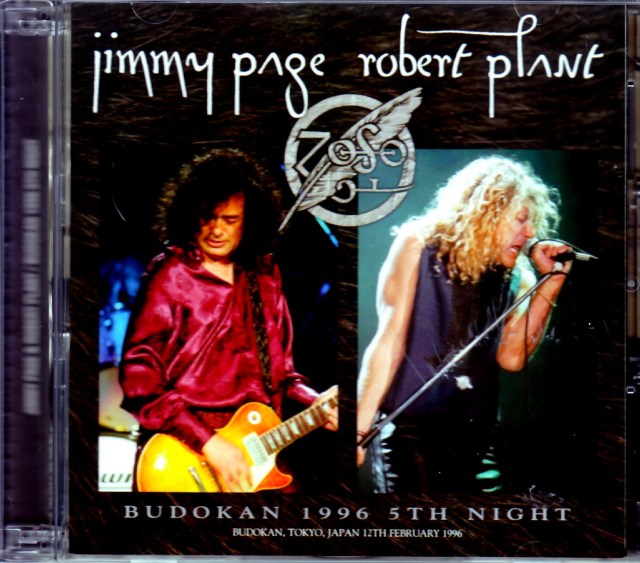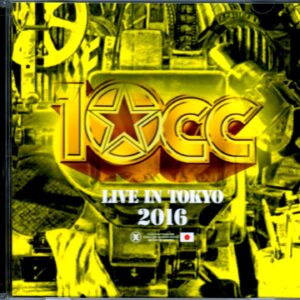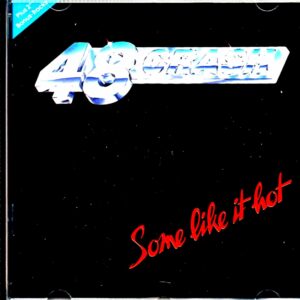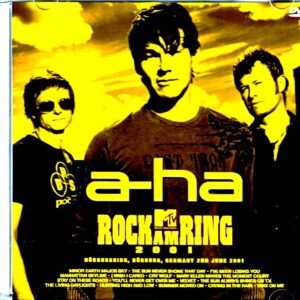Description
Twenty years ago, Paige Plant came to Japan and excited Japanese ZEP fans. In 1996, a huge amount of items were released, but they were released as the latest live performances from the time when they were active, and as time passed, they were about to enter the “vintage” realm (after all, twenty years have passed…). Now, the releases that can be called the latest items have completely disappeared. Considering the glorious period when the two of them recreated the ZEP legend, and even on Japanese stages such as the Budokan… It is strange that they have been overlooked in recent years. That is where the CD “BUDOKAN 1996 4TH NIGHT” released by our store came out. It is still a long-selling item that brings back the days of 1996, which now even brings back nostalgia. The show on February 9th recorded there was a rare pattern of starting from the “quiet” mode, which was a hot topic at the time, and the stage with this bold change was captured with wonderful clarity. The release date this time is February 12th, which was the Budokan show after the 9th. This was towards the end of the 1996 Budokan itinerary, and I was surprised by the set list, which was completely different from the 9th. However, the overall composition is a pattern of playing early ZEP numbers in a cascading manner, starting with “Immigrant Song Intro/The Wanton Song”, which is reminiscent of the show on the first day of the Japan tour on February 5th. In any case, the set list changed drastically every night of the 1996 Japan tour, and even the revival of the opening pattern of the first day seemed fresh. In fact, during the encore, you can hear the conversation of the surrounding fans (“It’s a pattern similar to the first day, isn’t it?”). Among them, “The Wanton Song” may be a tune that Plant cannot sing (cannot sing), and when I listen to it again now, it feels like a valuable performance. More than that, the impact of the change from the quiet opening pattern on the 9th was quite significant, and if you watched the shows back to back at that time, you would have felt that even more strongly. But what I want to emphasize above all else about this release is the incredible recording quality. The sound source was provided by the famous Taper, who has recorded many of our previous releases, including the Stones, Clapton, and Beck, on their original DAT audience recordings. The closeness of the sound image is ultra-quality, which can be called the highest level in 1996. It is well known that a high-quality title called “10 DAYS” was released at the time, but this sound source is of an exquisite level that easily surpasses it. It is true that the “10 DAYS” box was highly praised for its generally on-sound image, but it is also true that it now sounds lacking in sharpness. Of course, there must have been a sense of equalization technology at the time. In that respect, the on-sound image is a given for this release, and the graininess and clarity of each instrument are at an incredible level. On the contrary, it is amazing that you can even enjoy a little stereo feeling in the middle part of “Whole Lotta Love”. It is no exaggeration to say that Michael Lee, who is Page Plant’s greatest contributor, was great at drumming, as mentioned at the time of the release of “BUDOKAN 1996 4TH NIGHT”, but this recording also captures the wonderful texture, so please enjoy the powerful drumming. It is truly regrettable that he passed away at the young age of 39 in 2008. What’s more, what you can’t miss in this recording is Charlie Jones’ bass playing. It’s amazing that the quality of the bass line can be heard so clearly in the 1996 audience recording, but the rhythm combination between him and Lee is really wonderful, and you will definitely feel that he has evolved into a new backbone supporting Page and Plant. It’s not because it’s the same Jones, but the play that shows Jonesy’s play is a point that should be reevaluated with this release as a trigger. And since the show on this day was held after two days off, Page and Plant were full of energy. Compared to the 9th, “Tea For One” was performed in the first half of the show, and Page’s performance was particularly impressive. The great momentum of the rhythm section in “The Song Remains The Same,” which was not performed on the same day, can also be felt with the best sound quality. Page’s playing, which was like that of an active musician or active guitarist, was also captured with amazing sound pressure. Monday, February 12, 1996, was a substitute holiday for National Foundation Day, and the show started a little earlier than usual. This time leeway was also reflected in the audience’s reaction, as can be seen from the comment, “Isn’t that a badge holder? I’ll give you another treat like the old days…” pointing to a woman he saw in Plant’s dressing room. More than that, there must have been many enthusiasts who couldn’t help but grin when the word “badge holder” was spoken in the past. It may be difficult for Plant to sing the encore “Custard Pie” now. The cheerful show on such a holiday was captured with amazing sound quality. Let’s say without a doubt that this is the best audience recording of the 1996 Japan tour! It’s just amazing! Live at Budokan, Tokyo, Japan 12th February 1996 ULTIMATE SOUND(from Original Masters) UPGRADE Disc 1 (70:09) 1. Introduction 2. Egyptian Intro 3. Immigrant Song 4. The Wanton Song 5. Bring It On Home 6. Heartbreaker 7. Ramble On 8. No Quarter 9. Hurdy Gurdy Solo 10. Gallows Pole 11. Tea For One 12 Band Introductions 13. The Song Remains The Same 14. Going To California 15. That’s the Way 16. Babe I’m Gonna Leave You Disc 2 (57:33) 1. Whole Lotta Love 2. Yallah 3. Four Sticks 4. Kashmir 5. Custard Pie 6. Rock And Roll






Reviews
There are no reviews yet.